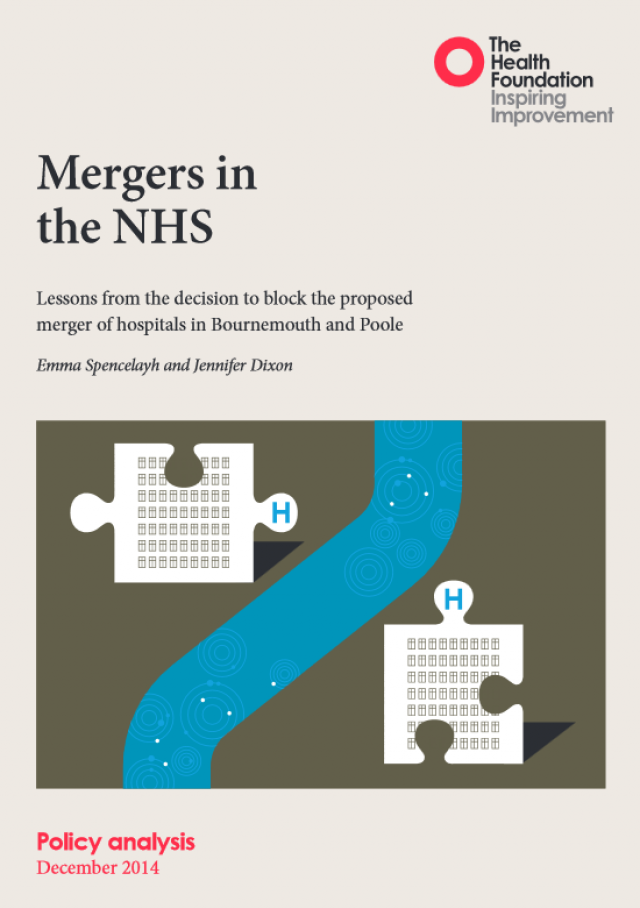Mergers in the NHS Lessons from the decision to block the proposed merger of hospitals in Bournemouth and Poole
December 2014

Key points
- The Health and Social Care Act 2012 did not determine the merger decision-making process – it merely confirmed that mergers involving NHS foundation trusts would be subject to the decision-making process established under the Enterprise Act 2002.
- The trusts pursued their proposed merger at a time of considerable instability in the NHS following the widespread organisational change as a result of the Health and Social Care Act 2012.
- The two trusts were required to sign undertakings prohibiting the merger for a decade (without the explicit permissions of the competition authorities). Given that they pursued their proposed merger at a time of flux in the NHS and were viewed as a test case, they should have another opportunity to put their case forward.
- It is crucial that those pursuing merger or major reconfiguration produce adequate evidence of patient benefit from the outset.
- Following the decision to prohibit the merger both Monitor, the health sector regulator, and the Competition and Markets Authority have set out guidance demonstrating benefits to patients as well as seeking to improve sector knowledge of the merger control regime. This is to be welcomed.
- We are not convinced that the evidence base is strong enough on the role of competition relative to other drivers of quality. We think that it is right that there is some external scrutiny of merger decisions and accept that competition should be part of that process. However, a broader test which explicitly considers a range of factors (including competition) and makes specific reference to the views of commissioners as well as the sector regulator might be an improvement on the current process.
- There is ambiguity about whether NHS foundation trusts are independent bodies or whether they should be viewed as belonging to one large NHS chain. This is a question at the heart of how the NHS should be managed and regulated in practice.
- The recent review by Sir David Dalton advocates the buddying or acquisition of poorly performing NHS providers by ambitious and well performing NHS foundation trusts to step up performance in the former. Both arrangements will need to be thought through with reference to the issues raised in this report.
In October 2013, the Competition Commission prohibited the proposed merger of Poole Hospital NHS Foundation Trust and the Royal Bournemouth and Christchurch Hospitals NHS Foundation Trust. This was the first merger between two NHS foundation trusts to be examined by the competition authorities following the Health and Social Care Act 2012 which confirmed their role in assessing the competition aspects of mergers involving foundation trusts.
While the case itself is old news, the merger decision process is still often referred to in the NHS as a barrier to needed and major service change. In Mergers in the NHS, the authors have carried out an independent analysis of the proposed merger. The report aims to draw out some lessons that would be useful for the NHS in the future, especially since major service reconfiguration may well be needed in some areas.
Download the summary
Further reading
Work with us
We look for talented and passionate individuals as everyone at the Health Foundation has an important role to play.
View current vacanciesThe Q community
Q is an initiative connecting people with improvement expertise across the UK.
Find out more

